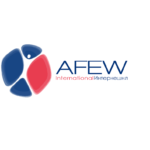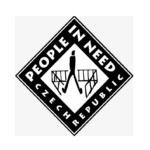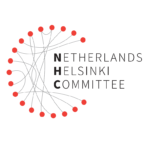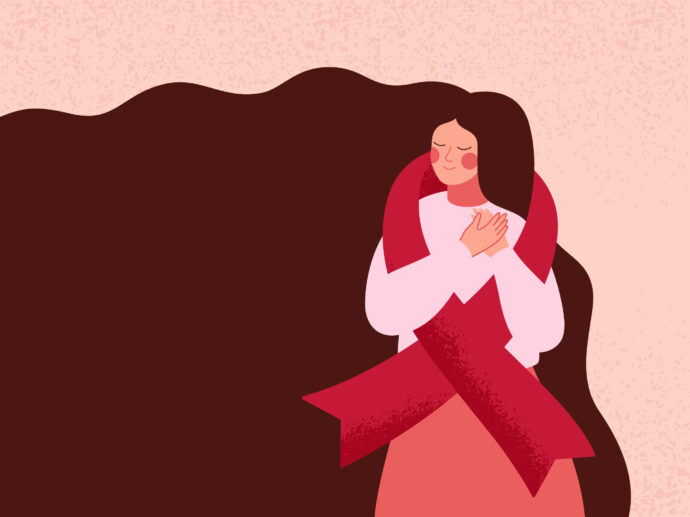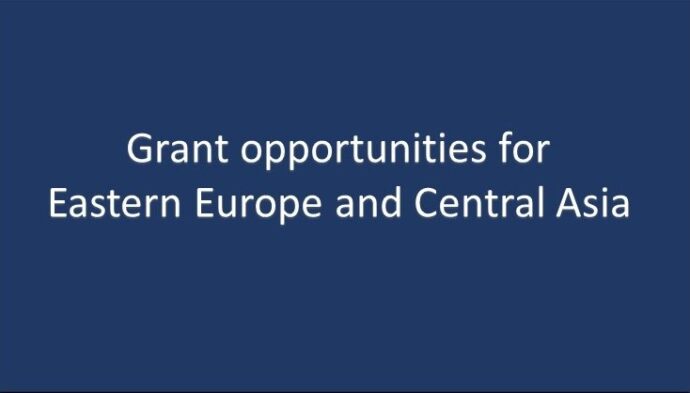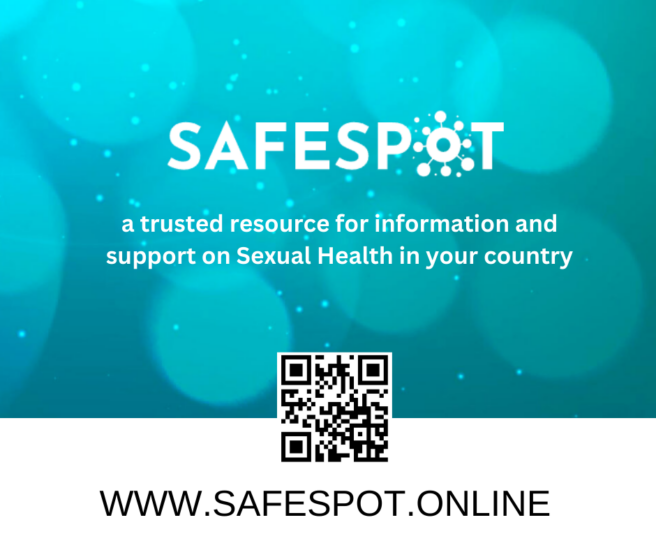As part of the EU COVID-19 Solidarity Programme for Eastern Partnership, AFEW International, People in Need (PIN) and Netherlands Helsinki Committee (NHC) joined forces to propose set of interventions in Armenia, Azerbaijan, Belarus, Georgia, Moldova and Ukraine to mitigate the impact of the Covid-19 pandemic and contribute towards longer term socio-economic resilience of vulnerable groups. 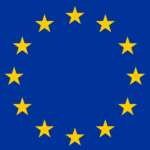
About the consortium
The consortium is built by three organisations with distinct experience and added value. PIN has a field presence in Armenia, Georgia, Moldova and Ukraine and will capitalize on its in-depth field-level knowledge to support CSOs that focus on community-level initiatives, develop watchdog initiatives and local independent journalists. AFEW International and NHC both are specialized in activities to improve human rights protection for responsible persons in closed institutions and ‘key populations at risk for public health concerns like HIV, TB and viral hepatitis’. With a total EU support of EUR 4m, these organizations will provide grant support to NGOs working with these categories of people and accompany them in strengthened monitoring, reporting, advisory, agenda-setting and advocacy work. AFEW International, PIN and NHC recognise the critical role local CSOs play in service delivery, community mobilisation, awareness raising, policy engagement and advocacy for the protection of human rights and civic freedoms during and in the post-pandemic environment.
Why COVID-19?
COVID-19 as a disease may have consequences linked to its pathophysiology for those with a health condition such as people living with HIV (PLWH), people with (history of) tuberculosis or with viral hepatitis, or other health conditions. The impact of COVID-19 on their individual medical condition is not likely to be different in EECA then elsewhere in the world. However, the epidemiology of some of the risk factors in EECA is such, that they are likely to have a substantial impact on certain populations, e.g. because of the relatively high burden of tuberculosis, especially drug-resistance TB.
COVID-19 Solidarity Program in Eastern Partnership countries strives for a comprehensive response to emergencies threatening Key Populations as the aftermath of COVID-19. Through small grants to CBOs, working with Key Populations, with activities ranging from advocacy and prevention, to treatment and care in terms of COVID-19 implications, based in countries of the Eastern Partnership countries, AFEW International responds to arising and anticipated post-pandemic challenges. Therefore, on the 3 September AFEW International launched the call for applications. In order to reach the overall goal of the project, AFEW International aims at supporting 9 organizations with small grants in the period of October – September 2021. The maximum amount per grant is € 5 000.
 Anke van Dam, executive director, AFEW International
Anke van Dam, executive director, AFEW International
About the project
This project is a unique opportunity to prepare and adjust local community based organizations to do their work and offer their services in a COVID-19 context. The Corona-crisis has changed our way of working with local communities very much; the lockdown measures, the physical distancing, personal protection measures showed that outreach work and contact with the communities has to be done in a different way. This project offers technical assistance and financial means to continue the work with the communities in a ‘COVID-19 proof’! These skills will also be handy to be agile and prepared for other emergency situations in the future.
About the activities
In the framework of this project, AFEW International will address the COVID-19 needs and advocacy for support of the key populations organizations that we normally work with. These are People who use Drugs, Sex workers and LGBTI organizations in the 6 countries of the project. Our expertise on working with these key populations will contribute to raising the awareness of their specific needs at country level, at EU level and within the consortium. AFEW International will make sure that key population organizations are linked up with the local partners of the other consortium partners like People in Need, Netherlands Helsinki Committee and Global Initiative for Psychiatry to ensure a stronger civil society demanding for prevention, treatment and care and ensure that no one is left behind!
About the partnership
The collaboration with PIN and NHC is a unique opportunity to combine expertise on different socially deprived groups in society, like elderly and impoverished people. Both PIN and NHC are well established and it is a privilege to complement our activities to theirs. Their human rights activities are important examples for our activities to link human rights with health. We never had joint projects with both of the partners before, I am looking forward working with them creating a strong partnership and leveraging attention to Eastern Europe and Central-Asia.
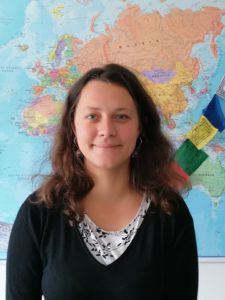 Dorota Šuráňová, Regional Programme Manager, People in Need
Dorota Šuráňová, Regional Programme Manager, People in Need
About expectations
With this project, we would like to focus on two areas. Firstly, it is to support the most vulnerable groups affected by COVID-19 through mitigation of consequences of the epidemy. Secondly, it is to provide capacity building to CSOs and grass root organisations we are going to work with during next 24 months.
Working with such a diverse group of actors will also provide us with an insight into needs of different sectors. Information collected from grantees will offer a unique mapping of gaps in services and people in need. This data can later be used for better targeted aid.
Because of the high number of included partners, we can create a solid platform for sharing information as well as good practices from the region. Sectors, activities or geographical range differ, therefore we can learn a lot from each other, as well as support in areas where we are still new.
About first results
In three project countries, our organization launched first rounds of calls already in July. During the month of August, we have selected 3 partners in Armenia, 2 partners in Georgia and 4 partners in Moldova, and currently we are finishing all necessary administration. We are positive to start the direct support to beneficiaries during the month of September. Awarded projects will run from 5 to 12 months.
The activities include for example support to social and legal services, supplies distribution, digitalization of education, psychosocial support, or trainings for further economic recovery.
Gulnar Bayramova, Programme Officer, Netherlands Helsinki Committee
About expectations
As NHC is specialized in activities to improve human rights protection for responsible persons in closed institutions, within the scope of this project we expect to contribute to the improvement of the conditions of the vulnerable population in closed institutions (prisons and mental health institutions) during the COVID-19 pandemic by collaborating with the related CSOs in targeted countries. By the end of the project, we would like to achieve following goals:
- Enhanced capacity of CSOs engaged in monitoring closed institutions, penal justice as well as mental health sector, and with a mandate in assisting people subjected to a criminal justice chain to work through the Covid-19 peak period. We hope that the CSOs will be able to deal with extra demands and security issues in Covid-19 conditions. This will enable respective CSOs to provide advice or follow-up towards authorities in response to stakeholders’ requests and to develop knowledge and skills to create an agenda towards improved pandemic resilience in the criminal justice chain.
- Improved organizational level, strategy setting, knowledge and skills in communications and advocacy, and national and international contacts of the CSOs with a mandate in the mental health sector.
These activities will also enable NHC to have better vision of the COVID-19 situation in and needs of closed institutions and respective CSOs in targeted countries as well as to expand the network with those CSOs.
About the partnership
AFEW International and PIN are organizations with distinct experience and established presence and networks in the targeted countries. AFEW International will focus on CSOs engaged in improving human rights protection of another group of key populations at risk for public health concerns. PIN will aim at boosting capacity of CSOs providing services to a range of vulnerable groups. With the NHC’s involvement this partnership will enable to have more holistic approach to strengthening CSOs working with vulnerable population groups during COVID-19 pandemic without any overlap. Additionally, NHC will subcontract delivery of some of the activities related to closed psychiatric institutions and psychiatric professionals and academics to Global Initiative on Psychiatry (GIP) as – given their extensive membership base and networks – they are uniquely positioned to ensure required outreach.
This also will allow NHC to have a comprehensive view of the situation and its improvement in targeted countries. Besides, the collaboration may give access to a broader network of related CSOs and possible future partnerships with AFEW International, PIN, and GIP.


